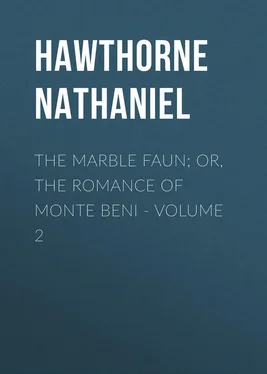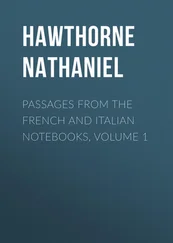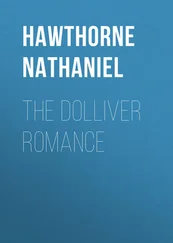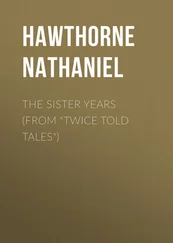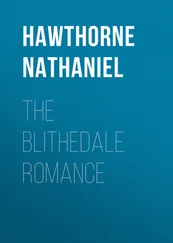Nathaniel Hawthorne - The Marble Faun; Or, The Romance of Monte Beni - Volume 2
Здесь есть возможность читать онлайн «Nathaniel Hawthorne - The Marble Faun; Or, The Romance of Monte Beni - Volume 2» — ознакомительный отрывок электронной книги совершенно бесплатно, а после прочтения отрывка купить полную версию. В некоторых случаях можно слушать аудио, скачать через торрент в формате fb2 и присутствует краткое содержание. Жанр: literature_19, foreign_antique, foreign_prose, на английском языке. Описание произведения, (предисловие) а так же отзывы посетителей доступны на портале библиотеки ЛибКат.
- Название:The Marble Faun; Or, The Romance of Monte Beni - Volume 2
- Автор:
- Жанр:
- Год:неизвестен
- ISBN:нет данных
- Рейтинг книги:3 / 5. Голосов: 1
-
Избранное:Добавить в избранное
- Отзывы:
-
Ваша оценка:
- 60
- 1
- 2
- 3
- 4
- 5
The Marble Faun; Or, The Romance of Monte Beni - Volume 2: краткое содержание, описание и аннотация
Предлагаем к чтению аннотацию, описание, краткое содержание или предисловие (зависит от того, что написал сам автор книги «The Marble Faun; Or, The Romance of Monte Beni - Volume 2»). Если вы не нашли необходимую информацию о книге — напишите в комментариях, мы постараемся отыскать её.
The Marble Faun; Or, The Romance of Monte Beni - Volume 2 — читать онлайн ознакомительный отрывок
Ниже представлен текст книги, разбитый по страницам. Система сохранения места последней прочитанной страницы, позволяет с удобством читать онлайн бесплатно книгу «The Marble Faun; Or, The Romance of Monte Beni - Volume 2», без необходимости каждый раз заново искать на чём Вы остановились. Поставьте закладку, и сможете в любой момент перейти на страницу, на которой закончили чтение.
Интервал:
Закладка:
“What has happened to you?” exclaimed Kenyon, stooping down over his friend, and wondering at the anguish which he betrayed.
“Death, death!” sobbed Donatello. “They know it!”
He grovelled beside the fountain, in a fit of such passionate sobbing and weeping, that it seemed as if his heart had broken, and spilt its wild sorrows upon the ground. His unrestrained grief and childish tears made Kenyon sensible in how small a degree the customs and restraints of society had really acted upon this young man, in spite of the quietude of his ordinary deportment. In response to his friend’s efforts to console him, he murmured words hardly more articulate than the strange chant which he had so recently been breathing into the air.
“They know it!” was all that Kenyon could yet distinguish, — “they know it!”
“Who know it?” asked the sculptor. “And what is it their know?” “They know it!” repeated Donatello, trembling. “They shun me! All nature shrinks from me, and shudders at me! I live in the midst of a curse, that hems me round with a circle of fire! No innocent thing can come near me.”
“Be comforted, my dear friend,” said Kenyon, kneeling beside him. “You labor under some illusion, but no curse. As for this strange, natural spell, which you have been exercising, and of which I have heard before, though I never believed in, nor expected to witness it, I am satisfied that you still possess it. It was my own half-concealed presence, no doubt, and some involuntary little movement of mine, that scared away your forest friends.”
“They are friends of mine no longer,” answered Donatello.
“We all of us, as we grow older,” rejoined Kenyon, “lose somewhat of our proximity to nature. It is the price we pay for experience.”
“A heavy price, then!” said Donatello, rising from the ground. “But we will speak no more of it. Forget this scene, my dear friend. In your eyes, it must look very absurd. It is a grief, I presume, to all men, to find the pleasant privileges and properties of early life departing from them. That grief has now befallen me. Well; I shall waste no more tears for such a cause!”
Nothing else made Kenyon so sensible of a change in Donatello, as his newly acquired power of dealing with his own emotions, and, after a struggle more or less fierce, thrusting them down into the prison cells where he usually kept them confined. The restraint, which he now put upon himself, and the mask of dull composure which he succeeded in clasping over his still beautiful, and once faun-like face, affected the sensitive sculptor more sadly than even the unrestrained passion of the preceding scene. It is a very miserable epoch, when the evil necessities of life, in our tortuous world, first get the better of us so far as to compel us to attempt throwing a cloud over our transparency. Simplicity increases in value the longer we can keep it, and the further we carry it onward into life; the loss of a child’s simplicity, in the inevitable lapse of years, causes but a natural sigh or two, because even his mother feared that he could not keep it always. But after a young man has brought it through his childhood, and has still worn it in his bosom, not as an early dewdrop, but as a diamond of pure white lustre, — it is a pity to lose it, then. And thus, when Kenyon saw how much his friend had now to hide, and how well he hid it, he would have wept, although his tears would have been even idler than those which Donatello had just shed.
They parted on the lawn before the house, the Count to climb his tower, and the sculptor to read an antique edition of Dante, which he had found among some old volumes of Catholic devotion, in a seldom-visited room, Tomaso met him in the entrance hall, and showed a desire to speak.
“Our poor signorino looks very sad to-day!” he said.
“Even so, good Tomaso,” replied the sculptor. “Would that we could raise his spirits a little!”
“There might be means, Signore,” answered the old butler, “if one might but be sure that they were the right ones. We men are but rough nurses for a sick body or a sick spirit.”
“Women, you would say, my good friend, are better,” said the sculptor, struck by an intelligence in the butler’s face. “That is possible! But it depends.”
“Ah; we will wait a little longer,” said Tomaso, with the customary shake of his head.
CHAPTER XXVIII
THE OWL TOWER
“Will you not show me your tower?” said the sculptor one day to his friend.
“It is plainly enough to be seen, methinks,” answered the Count, with a kind of sulkiness that often appeared in him, as one of the little symptoms of inward trouble.
“Yes; its exterior is visible far and wide,” said Kenyon. “But such a gray, moss-grown tower as this, however valuable as an object of scenery, will certainly be quite as interesting inside as out. It cannot be less than six hundred years old; the foundations and lower story are much older than that, I should judge; and traditions probably cling to the walls within quite as plentifully as the gray and yellow lichens cluster on its face without.”
“No doubt,” replied Donatello, — “but I know little of such things, and never could comprehend the interest which some of you Forestieri take in them. A year or two ago an English signore, with a venerable white beard — they say he was a magician, too — came hither from as far off as Florence, just to see my tower.”
“Ah, I have seen him at Florence,” observed Kenyon. “He is a necromancer, as you say, and dwells in an old mansion of the Knights Templars, close by the Ponte Vecchio, with a great many ghostly books, pictures, and antiquities, to make the house gloomy, and one bright-eyed little girl, to keep it cheerful!”
“I know him only by his white beard,” said Donatello; “but he could have told you a great deal about the tower, and the sieges which it has stood, and the prisoners who have been confined in it. And he gathered up all the traditions of the Monte Beni family, and, among the rest, the sad one which I told you at the fountain the other day. He had known mighty poets, he said, in his earlier life; and the most illustrious of them would have rejoiced to preserve such a legend in immortal rhyme, — especially if he could have had some of our wine of Sunshine to help out his inspiration!”
“Any man might be a poet, as well as Byron, with such wine and such a theme,” rejoined the sculptor. “But shall we climb your tower The thunder-storm gathering yonder among the hills will be a spectacle worth witnessing.”
“Come, then,” said the Count, adding, with a sigh, “it has a weary staircase, and dismal chambers, and it is very lonesome at the summit!”
“Like a man’s life, when he has climbed to eminence,” remarked the sculptor; “or, let us rather say, with its difficult steps, and the dark prison cells you speak of, your tower resembles the spiritual experience of many a sinful soul, which, nevertheless, may struggle upward into the pure air and light of Heaven at last!”
Donatello sighed again, and led the way up into the tower.
Mounting the broad staircase that ascended from the entrance hall, they traversed the great wilderness of a house, through some obscure passages, and came to a low, ancient doorway. It admitted them to a narrow turret stair which zigzagged upward, lighted in its progress by loopholes and iron-barred windows. Reaching the top of the first flight, the Count threw open a door of worm-eaten oak, and disclosed a chamber that occupied the whole area of the tower. It was most pitiably forlorn of aspect, with a brick-paved floor, bare holes through the massive walls, grated with iron, instead of windows, and for furniture an old stool, which increased the dreariness of the place tenfold, by suggesting an idea of its having once been tenanted.
Читать дальшеИнтервал:
Закладка:
Похожие книги на «The Marble Faun; Or, The Romance of Monte Beni - Volume 2»
Представляем Вашему вниманию похожие книги на «The Marble Faun; Or, The Romance of Monte Beni - Volume 2» списком для выбора. Мы отобрали схожую по названию и смыслу литературу в надежде предоставить читателям больше вариантов отыскать новые, интересные, ещё непрочитанные произведения.
Обсуждение, отзывы о книге «The Marble Faun; Or, The Romance of Monte Beni - Volume 2» и просто собственные мнения читателей. Оставьте ваши комментарии, напишите, что Вы думаете о произведении, его смысле или главных героях. Укажите что конкретно понравилось, а что нет, и почему Вы так считаете.
